People Are Very Upset With Hurricane Joaquin: Here’s Why
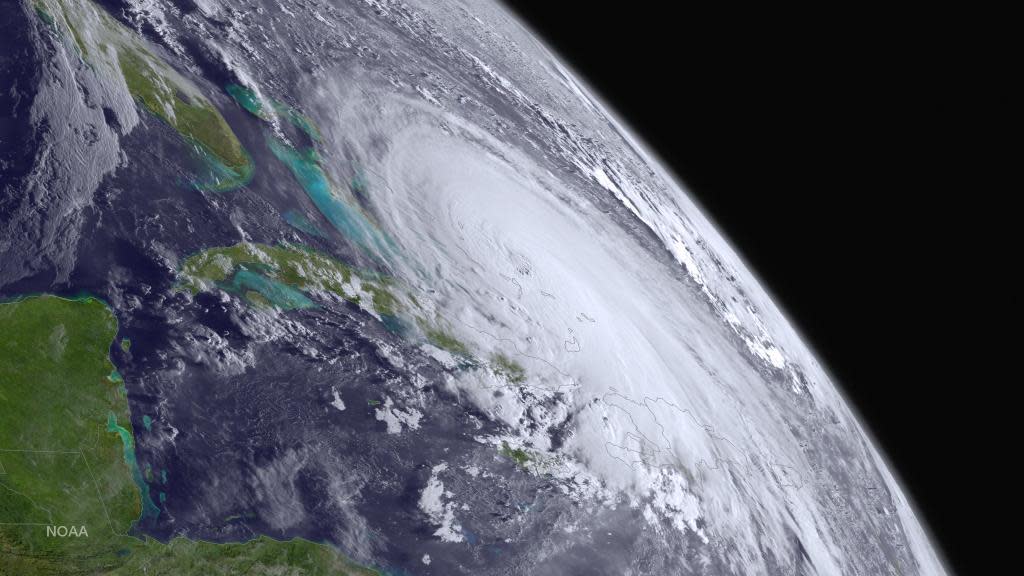
Hurricane Joaquin has changed tracks and will now most likely be heading out to sea and sparing the East Coast from extensive damage. You’d think people would be happy about this, but not everyone is. Experts explain why some of us feel a sneaking sense of disappointment. (Photo: NOAA)
Joaquin, a dangerous category four storm hovering over the Bahamas, has had people in the mid-Atlantic region of the U.S. on edge for days.
North and South Carolina, New Jersey, and Virginia have already declared a State of Emergency.
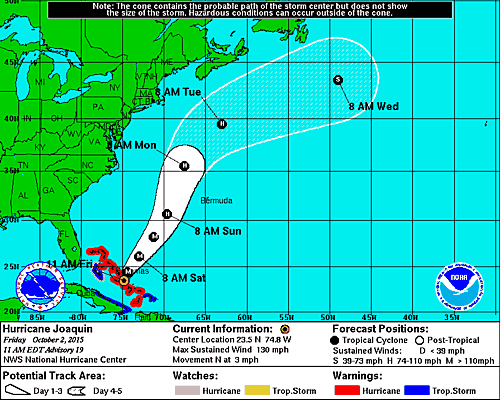
Hurricane Joaquin’s track as of Friday, October 2nd at 10am. (Image: NOAA)
After days of predicting that Joaquin will make landfall this weekend, meteorologists now say it’s less likely that the hurricane will hit the U.S. — but they still aren’t ruling it out.
And, if tweets are any indication, people are … disappointed?
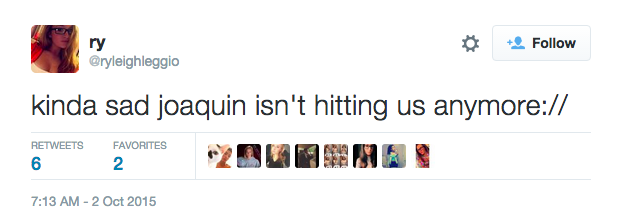
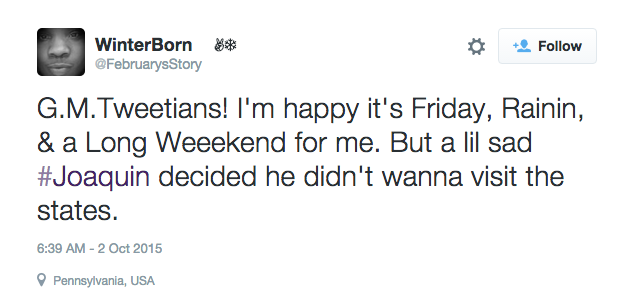
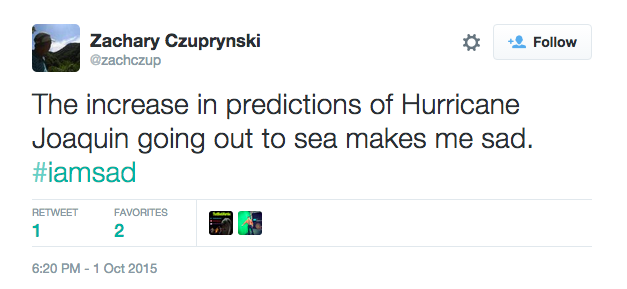
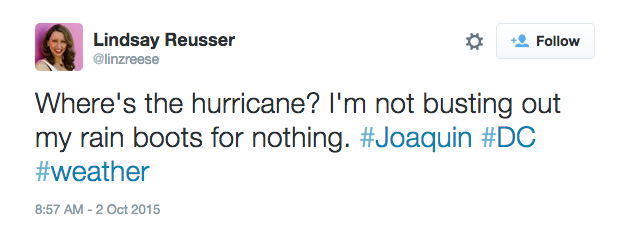
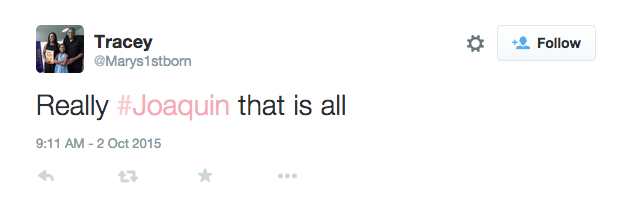
Despite their often-deadly nature, hurricanes seem to come with some level of excitement (and subsequent disappointment when they don’t have as much of an impact as expected). But why?
It’s an evolutionary response that we’re hard-wired to experience, Miami-area licensed clinical psychologist Erika Martinez, PsyD, tells Yahoo Health.
“When this sort of imminent danger happens, your body goes into fight or flight mode,” she says, referencing the reaction we have in the face of danger that makes us either want to fight the threat or run away from it. “It heightens our arousal, which can either created a frenzied, feverish feeling of excitement or visceral fear.”
Martinez says people either feel excited or afraid when a hurricane approaches depending on what has typically happened in the past when their fight or flight response is activated.
For example, if you’ve been through minor hurricanes or natural weather events in the past and emerged relatively unscathed, you’re more likely to have an excited response. But those who have been through more serious hurricanes and witnessed severe damage or destruction are more likely to have a fear response.
The excited or fearful response can even carry over from your ability to cope with other stressful situations, like work deadlines. If you typically sail through them without much hassle, you’re more likely to have an excited response to other fight or flight-inducing situations like hurricanes because you know things have always worked out in the past, Martinez says.
Simon Rego, PsyD, director of psychology training at Montefiore Medical Center/Albert Einstein College of Medicine, tells Yahoo Health that we can easily confuse early feelings of fear and excitement when we hear about a potential threat because our body’s response to both is similar.
The way we end up feeling “depends on our interpretation of these physiological reactions,” he says. “That bodily reaction can be interpreted as excitement, but as the threat gets closer and poses more realistic danger, what was once excitement can turn to fear.”
The constant media coverage doesn’t help, either. “It just takes that anxiety and heightens it several notches,” says Martinez. “Hurricanes become sensationalized so much that it’s borderline unhealthy and obsessive.”
As for the disappointed feeling when a hurricane doesn’t amount to much, licensed clinical psychologist Alicia H. Clark, PsyD, tells Yahoo Health that it’s just that: legitimate disappointment. The threat of a hurricane can make us anticipate a day off from work, school, and general life obligations, and also can lend a sense of novelty to our lives.
When the opportunity is snatched away, it leaves us feeling cheated.
“Without that surge of excitement and a resolution, we can be left disappointed at some level,” she says, “even as a disaster averted is a decidedly preferred outcome.”
Read This Next: Scientists Say Shopping Addiction Is Real … and Here’s How to Tell If You Have It

